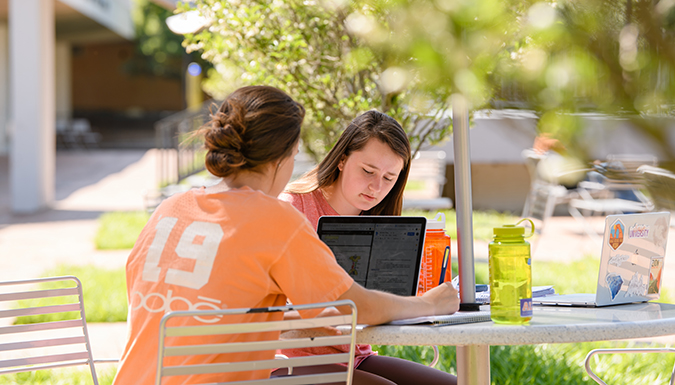Services from Clemson Online
Clemson Online provides expertise and personalized support to the faculty and staff of Clemson University. Both our online development and learning technology teams are united by a goal to create and sustain unique learning opportunities and environments where tech and teaching meet.

Learning Technology
The Clemson Online Learning Technology team is dedicated to supporting faculty, staff, and students with their use of supported academic learning technologies.
Learning Tech PageFor-Credit Online Development
Clemson Online offers course and program development services for instructors and staff who are interested in creating unique, rigorous online courses for students enrolled at Clemson. Read more to see what our team of Digital Learning Strategists can do to help you build quality online courses and programs.
For-Credit Page

Non-Credit Online Development
Clemson Online offers course design and development services for faculty, staff, and Extension professionals who are interested in creating unique online courses for continuing education or professional training and development.
Non-Credit PageFind an Online Program
For-Credit, Non-Credit, and Cooperative Extension Programs
Explore Clemson University's variety of online programs. To get started, choose the course type by for-credit, non-credit, and Cooperative Extension online courses.
Explore Online Programs
Consultations
Clemson Online hosts consultations throughout the semester for assistance, information, and/or training. Clemson Online supports many instructional tools and practices, such as accessibility, Zoom, Canvas, Kaltura, Camtasia, and Respondus Monitor.
Video Services
Visit our video services page for an in-depth look at various video production services, including Lightboard recordings, onsite video work, editing, and more.
Quality Matters
A Quality Matters course review is a collaborative, comprehensive examination of an online or blended course by a team of trained, certified peer reviewers, all of whom have online teaching experience.
COFFEE
The Clemson Online Furthering Faculty Education and E-Learning, or COFFEE, prepares instructors for teaching online.
